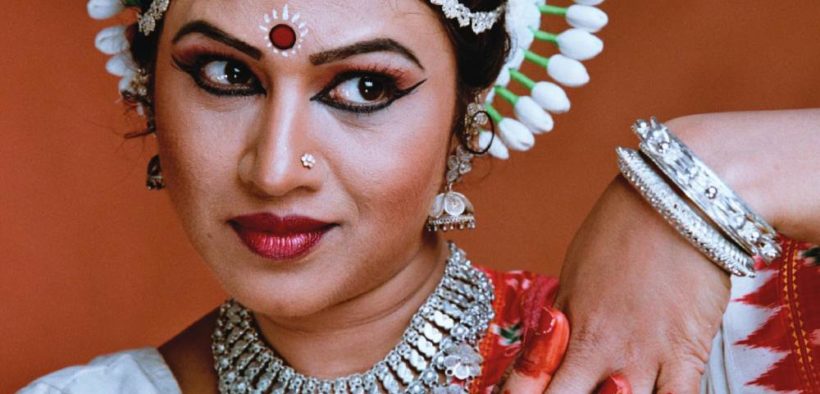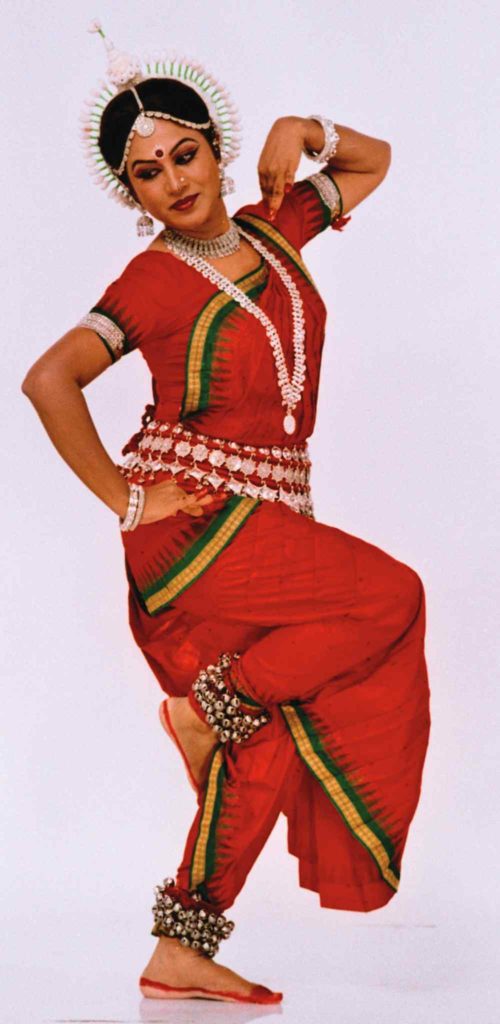Mudras Against Cancer

Danseuse Shubudha Varadkar talks about how following her passion blindly eventually helped her heal
By Christina Tom Jose
Shubadha Varadkar has adorned the world’s best stages with her dance. However, the 57-year-old Odissi dancer is reluctant to call dance her ‘career’. “I never thought of dance as a career. I always thought of it as a passion of mine, a passion that did not allow me to take up anything else,” she says. When Varadkar was diagnosed with ovarian cancer in 2006, it was this very passion for dance that kept her going through the trying days of cancer treatment and recovery, finally emerging as triumphant and resilient as ever. Varadkar’s tryst with classical dance started as a high school student.
Unlike other prominent dancers who belong to a lineage of artists, Varadkar came from a family of serious academicians. Her first dance lesson itself came as a reward for achieving a distinction in her matriculation exams. Although her instruction in dance started with Bharatanatyam, she was inspired to take up Odissi after watching a performance by the maestro, Guru Shri Kelucharan Mohapatra. It was under the very same guru that Varadkar mastered the dance form. Although she was equally adept in Bharatanatyam and Odissi and practiced both together in the beginning, she decided to stick with Odissi for fear of overlapping between the two styles.
“Being a classical dancer having no family tradition in dance, it was very difficult in the beginning. Like for any other artist, the struggle was always there,” says Varadkar. It was after receiving much encouragement from leading artists of the day that she made it big in the field. Her first signs of illness showed up during a performance in London. On stage, Varadkar felt a pain in her abdomen; after the performance, she discovered she was bleeding and was rushed to the hospital. An ovarian tumor was found, and she promptly underwent surgery. Incredibly, within a mere 15 days after her surgery, Varadkar was back on stage.

“THERE IS NO SHORTCUT. YOU CANNOT ESCAPE THE TREATMENT. LISTEN TO EVERYTHING YOUR DOCTORS SAY. IF YOU APPROACH TREATMENT WITH A POSITIVE ATTITUDE, IT WILL DEFINITELY HAVE BETTER RESULTS.”
Shubadha Varadkar – Danseuse and Ovarian Cancer Survivor
She was adamant that she would perform, even when those around her doubted that she could. What followed were numerous ‘rehearsals’, in which Varadkar and her musicians would discuss every part of the composition, with her sometimes practicing steps lying on the hospital bed. Varadkar used to rehearse every step mentally, and the performance was all she thought about. For fear of exhausting herself, she even refused to practice beforehand; what she played on stage was her first performance, and it was no less than her best. “That was the time I realized that when you dance, it is not just your body that dances, but unique life energy that guides everything we do,” she says. Throughout her treatment, Varadkar virtually forgot about cancer that plagued her. It was only her body that was affected; her mind was elsewhere. She was constantly thinking about dance, and about her performances, and invested all her time into it. “I would look forward to every performance that was lined up,” she says. “I used to schedule my performances in such a way that each would be on the third or fourth week after my chemo cycle.” During her chemo cycles, one of the major challenges Varadkar faced was when she started losing hair. Her mother fashioned a wig for her, which could be tied around her head. Varadkar’s aim was to be normal, to be as good a dancer as she was before diagnosis. She chose to hide her illness from everybody, lest they spare her any criticism.
Anyone who interacts with Varadkar at once becomes aware of her keen positivity, and an infectious eagerness in everything she says. Her words and attitude are characterized by that nameless grace that is intrinsic to dancers. She eagerly talks about her current projects, one which attempts a confluence of Odissi and the Spanish dance form Flamenco, while the other, titled Advaitham explores “the philosophy of duality of life, and how, ultimately, we go from duality to oneness.” She longs to travel to Gangotri, a place she has already visited but still loves. Even within her bustling schedule, Varadkar manages to squeeze in some time to talk to cancer patients. Her first words are always to be positive. “There is no shortcut. You cannot escape the treatment. Listen to everything your doctors say. If you approach treatment with a positive attitude, it will definitely have better results,” she says. Perhaps the most important piece of advice she gives is to “continue with your passion and profession. Life doesn’t stop here, it has to go on. All you have to do is to face everything with a strong will.” Varadkar’s journey of recovery is a testament to the power of a resolute mind.
Also read about
















